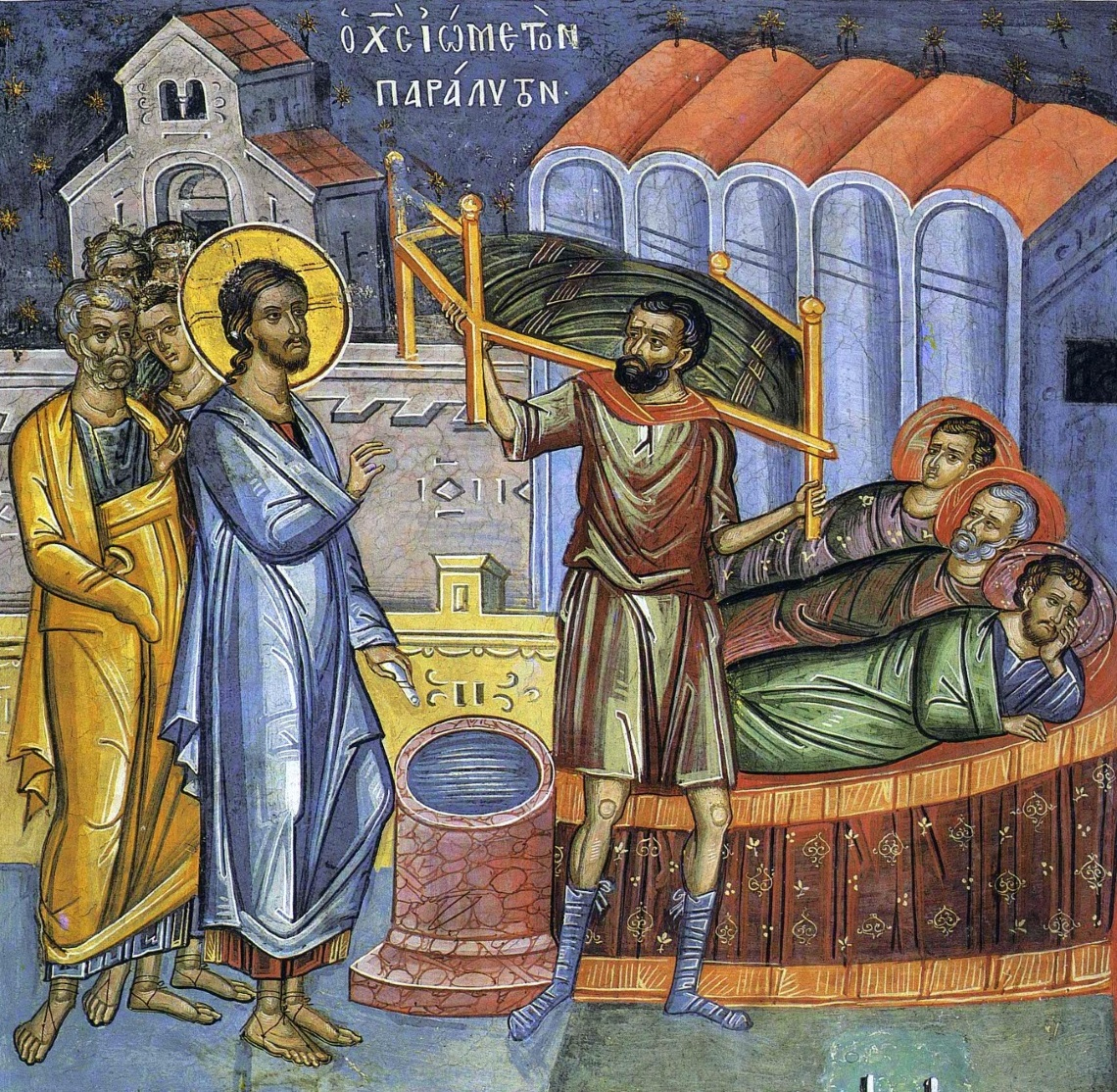Christian Art | George Herbert | Sepulchre | The Church | Constancie
George Herbert | The Temple | The Church | Constancie
Who is the honest man?
He that doth still and strongly good pursue,
To God, his neighbour, and himself most true:
Whom neither force nor fawning can
Unpinne, or wrench from giving all their due.
Whose honestie is not
So loose or easie, that a ruffling winde
Can blow away, or glittering look it blinde:
Who rides his sure and even trot,
While the world now rides by, now lags behinde.
Who, when great trials come,
Nor seeks, nor shunnes them; but doth calmly stay,
Till he the thing and the example weigh:
All being brought into a summe,
What place or person calls for, he doth pay.
Whom none can work or wooe
To use in any thing a trick or sleight,
For above all things he abhorres deceit:
His words and works and fashion too
All of a piece, and all are cleare and straight.
Who never melts or thaws
At close tentations: when the day is done,
His goodnesse sets not, but in dark can runne:
The sunne to others writeth laws,
And is their vertue; Vertue is his Sunne.
Who, when he is to treat
With sick folks, women, those whom passions sway,
Allows for that, and keeps his constant way:
Whom others faults do not defeat;
But though men fail him, yet his part doth play.
Whom nothing can procure,
When the wide world runnes bias, from his will
To writhe his limbes, and share, not mend the ill.
This is the Mark-man, safe and sure,
Who still is right, and prayes to be so still
![]()

George Herbert | The Temple | The Church | Constancie
This poem explores characteristics of the ‘honest man’, presenting him as an ideal figure who embodies integrity, constancy, and compassion. Through a series of tightly crafted six-line stanzas, Herbert develops a portrait of this moral archetype, contrasting his steadfast virtues with instability and corruption of the world around him.
The opening question, ‘Who is the honest man?’ invites reflection, and the answer unfolds in a detailed examination of his traits. The honest man is described as unwavering in his pursuit of good, true to God, his neighbours, and himself. His commitments remain firm, unshaken by ‘force’ or ‘fawning’. This insistence on steadfastness establishes honesty as an active and resilient quality, impervious to external pressures.
The six-line stanza form allows for a steady, deliberate rhythm that mirrors the honest man’s unchanging character. Herbert introduces each virtue systematically, with the regularity of the stanza structure reinforcing the idea of constancy. The phrase ‘an even trot’ emphasizes this regularity, contrasting the honest man’s steady course with the erratic pace of a world that alternately ‘rides by’ and ‘lags behind’.
Honesty is further characterized by its durability. It is not ‘so loose or easy, that a ruffling wind / Can blow away’, a metaphor that critiques superficial or circumstantial virtue. Instead, the honest man is immovable, maintaining his integrity even when faced with great trials. He neither ‘seeks, nor shuns’ such challenges but approaches them calmly and thoughtfully, weighing their demands. This image presents honesty as a balanced and deliberate quality, one that prioritizes duty and justice over personal comfort or avoidance.
Transparency and coherence are central to the honest man’s character. His ‘words and works and fashion too’ are ‘all of a piece’, emphasizing a unity between speech, action, and demeanour. This alignment contrasts with deceit, which he ‘abhors’, and underscores the idea that true honesty is holistic, extending to all areas of life. His virtue is intrinsic, not dependent on external validation, and persists even in darkness, where others falter. The verse ‘The sun to others writeth laws, / And is their virtue; virtue is his sun’ highlights this distinction, suggesting that the honest man’s goodness is self-sustaining, not reliant on external oversight or conditions.
The poem also acknowledges complexities of human interaction, particularly in the lines describing the honest man’s dealings with ‘sick folks, women, those whom passions sway’. Here, he is depicted as compassionate and adaptable, understanding the vulnerabilities of others without compromising his principles. This balance between firmness and empathy demonstrates that honesty is not rigid or inflexible but accommodates imperfections of human experience.
In its final stanza, the poem addresses corrupting forces of the world, described as running ‘bias’, a term suggesting both deviation and partiality. The honest man resists these influences, refusing to ‘writhe his limbs’ or participate in perpetuating harm. Instead, he remains the ‘Mark-man’, a figure of precision and focus who stays true to his moral aim. This archer metaphor underscores disciplined effort required to maintain honesty amid distraction and distortion.
The concluding prayer, ‘to be so still,’ highlights the active and ongoing nature of honesty. The honest man’s qualities are not static but require constant vigilance and renewal. The poem connects human virtue with divine grace, suggesting that honesty is both an individual effort and a reflection of alignment with higher moral truths.






